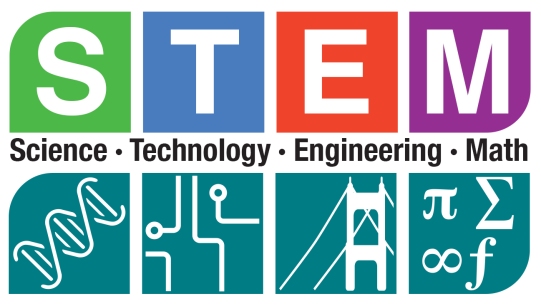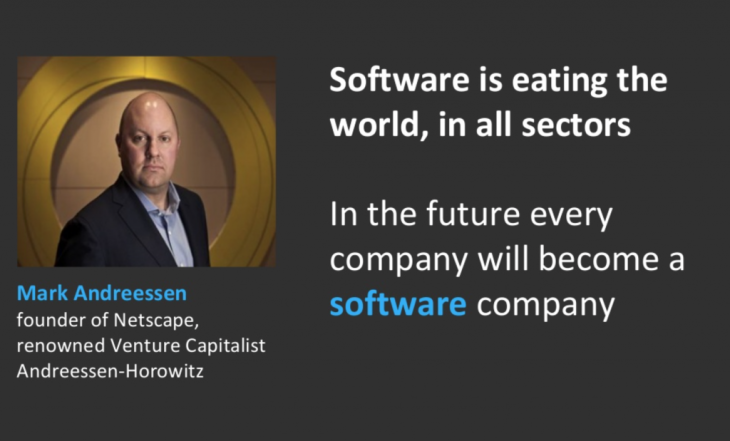
Devi in Meditation (c) Anuva Kalawar December 2018
Coming as I do from a deep and strong tradition of connecting with the Devi through contemplation, chanting and meditation, I use the lens of the ‘pre-modern’ to view the rational modern social and economic world I inhabit. This enables me to come up with different ways to navigate ambiguity and uncertainty than what can be found in the box of modernity.
The conceit of modernity dates to the publishing of The Leviathan by Thomas Hobbes in the mid- 1600s. Modern man or woman began to see him/herself as rational and, thus, more mature. Structured, deductive thinking was given higher value and became the core of what is known as the European Enlightenment. One of the central tenets of this philosophical framework is that nature is dead, inert, and lacking of any spirit and, therefore, the Modern man and woman can dominate and exploit it without regard to consequences. The consequence of this philosophy is the modernity paradigm that has produced the capital intensive carbon-based economy we now live in.
The academic and scientific establishment arising out of the European Enlightenment framework have further broadened and deepened the social construct of Hobbes to reach every nook and cranny of our lives. One organic outcome of this framework is the assembly line processes of education with its increasingly singular focus on STEM (Science, Technology, Engineering and Mathematics). It has also influenced the approach to health care based on the view that our bodies are part of nature, hence inert. Emotions and intellect are to be seen as arising out of the organic cellular interactions. Increasingly nature of human agency came to be suspect: it was seen as an extension of the material.
The modern individual in the 21st century is programmed to see themselves and the world around them in a particular rational manner: to look for cause-effect processes, and wait for confirmation from academics and scientists to tell them what those are. Individuals acting on any memes without the blessings of science and academia are considered pre-modern and superstitious – even child-like and dangerous
Reliance on academia or science has made us less and less equipped to deal with ambiguity and uncertainty. Our individual agency has gradually been eroded and outsourced to a scientific establishment that has often been found to be hand-in-glove with big business.
Modern rationality structures time and space through contracts. It teaches us that everything has to be a time and cost bound contract, whether it is written or verbal. These ubiquitous social contracts began with the one that Hobbes proposed in mid-17th century, as the basis for the modern national legal framework. The expected outcomes of these social contracts have become our portfolio of desires and fears.
Social contracts drive our actions, and when they fail our expectations of these outcomes fail. Desires related to the expectations from the social contract collapse and fears take over as we increasingly find ourselves face to face with uncertainty and ambiguity. We are less and less equipped to deal with areas of life that have less obvious rational structure. And as the fragile framework of modern rationality buckles under us, both adults and youth are left traumatized.
For adults, such break down of social contracts may arise from loss of spouse, children, jobs, homes, cars are outcomes of events where major social contracts have collapsed at our personal level. These are the big traumas many adults face, as they wander into uncertainty and ambiguity, as the fragile framework of modern rationality buckles under them.
Besides major social contracts, we engage in the myriad daily mini-social contracts. One of these unending contracts is STEM education which allows for tracing of performance on a daily basis and provides outcomes in grades. Failures are inbuilt into the processes which implement such contractual system. The individual student who is at the receiving end of outcomes of STEM contracts is (irrationally) blamed for the failed outcomes by the rationally constructed structures. Because the rational STEM educational process itself is too narrowly programmed, just like old-fashioned computer code. It does not have a way to deal with the inbuilt failure points in its delivery system. The result is many students in the modern educational students may end up seeing themselves as failures.
How did this state of affairs arise in a framework that promises individual liberty and pursuit of happiness?
Techno-Optimism to the Rescue
The ‘software will eat the world’ meme expressed by Marc Andreessen (designer – maker of the first user friendly web interface – Netscape – in the early 1990s and now a prominent Silicon Valley VC), and published in the Wall Street Journal in 2011, was peak of techno-optimism.
Post 2008 financial crisis and the great recession, techno-optimism became the savior paradigm. Software would eat the world: it would deliver goods and services to people much effectively and efficiently than people could. The consequence would be:
- Labor would play increasingly smaller roles in creating and maintaining the social world.
- There would be a move to universal basic income to ensure people do not starve and have basic minimum needs met.
STEM became the gospel to spread the good news of techno-optimism to the schools. Oracles were handed down from Silicon Valley.
In one fell swoop post 2008, funding for STEM streamed into public schools from the Federal and State governments. Testing schemes were put in place and educators ‘adapted’ to the new paradigm. Stories of student and teacher burn out began trickling out [in some schools teachers tried to bend the rules to help students pass tests.]
Eight years on, in 2016, social and economic ambiguity and uncertainty were still high: only a few young people were getting the high paying jobs in Silicon Valley and Wall Street. Most were floundering. Parents had adult children back at home after an expensive college experience. And software had not yet eaten the most dysfunctional sector of the economy: healthcare. The apparently massive systems solution put in place to support affordable health care ended up with confusion and higher costs for many, if not most, families.
The ‘software will eat the world’ meme has had its time on the national stage.
The new meme
We are now, in 2018, embedded in the make-America-great-again meme floated to take care of the social and economic ambiguity and uncertainty that we face. During the techno-optimism phase, stocks of companies such as Apple, Google (Alphabet) and Facebook rocketed up. Now, in very early 2018, all American company stocks are up with the make-America-great-again meme, making all who own stocks winners.
For the many who don’t own stocks or enough stocks, the ambiguity and uncertainty in the social and economic world we inhabit is likely to continue and increase. The trend towards automation is not going away. Global warming trends are not going away. And new geo-political realities of having more than one great power may not emerge without conflict.
Many of us carry this angst within us and it impacts our mental and physical well-being. How can we cope with this angst and heal ourselves, regardless of what new major meme is played out in the rational modern world?
Come, sit with us under the BanayanTree
At 21BanyanTree you begin to explore how to live and thrive amidst the cacophony of confusion and deceit that seem to surround us. There are no guarantees. Nothing may change outside of us. What we will work together is on cognitive shifts inside of us. And to energize ourselves.
We use ‘pre-modern’ approaches and views of ourselves, the memes that modernity has shunned in the last 400 years. We do not throw the baby out with the bathwater but retain a carefully curated set of modern processes, technologies and solutions that integrate into our goals of a more harmonious and joyful life, even as we work hard to change our perspectives.
Our goal is to help manage desires and fears, using techniques that create more agency for ourselves at the individual and group level.
To explore this further, you can reach me at jayantkalawar@gmail.com.




Thanks for your thoughtful comment. Do plan to post the process by which different cultural paradigms may evolve. Please feel free to start a discussion on https://www.facebook.com/21BanyanTree/ perhaps by inviting your friends. I see this as a co-creative process.
LikeLike
Would be more interested in reading about the processes for alleviating the miseries of dysfunctional modern human beings. Do post the alternate solutions to the prevailing socioeconomic and political sceneroio.
LikeLiked by 1 person